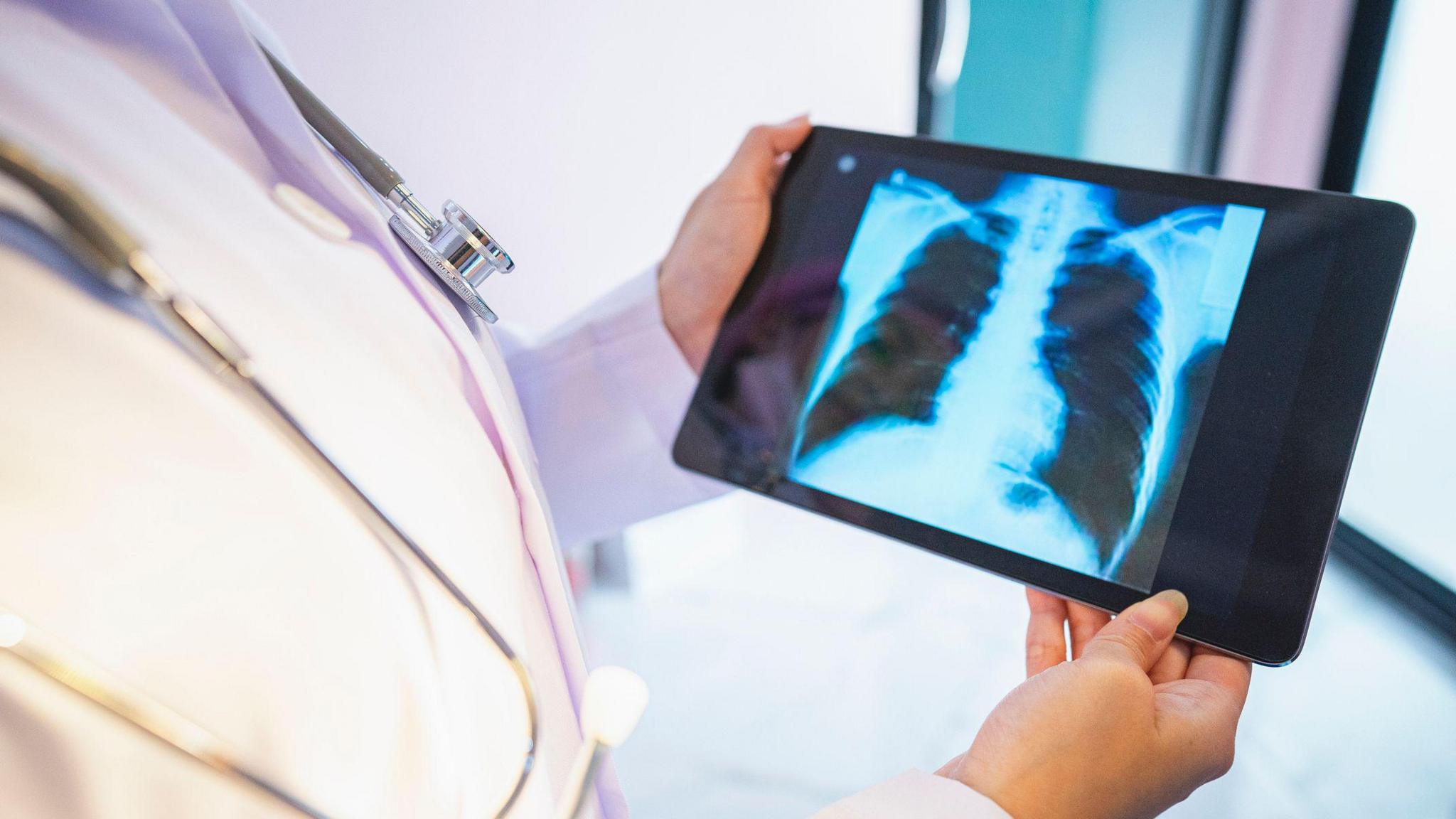Dad with breast cancer warns of male 'ignorance'
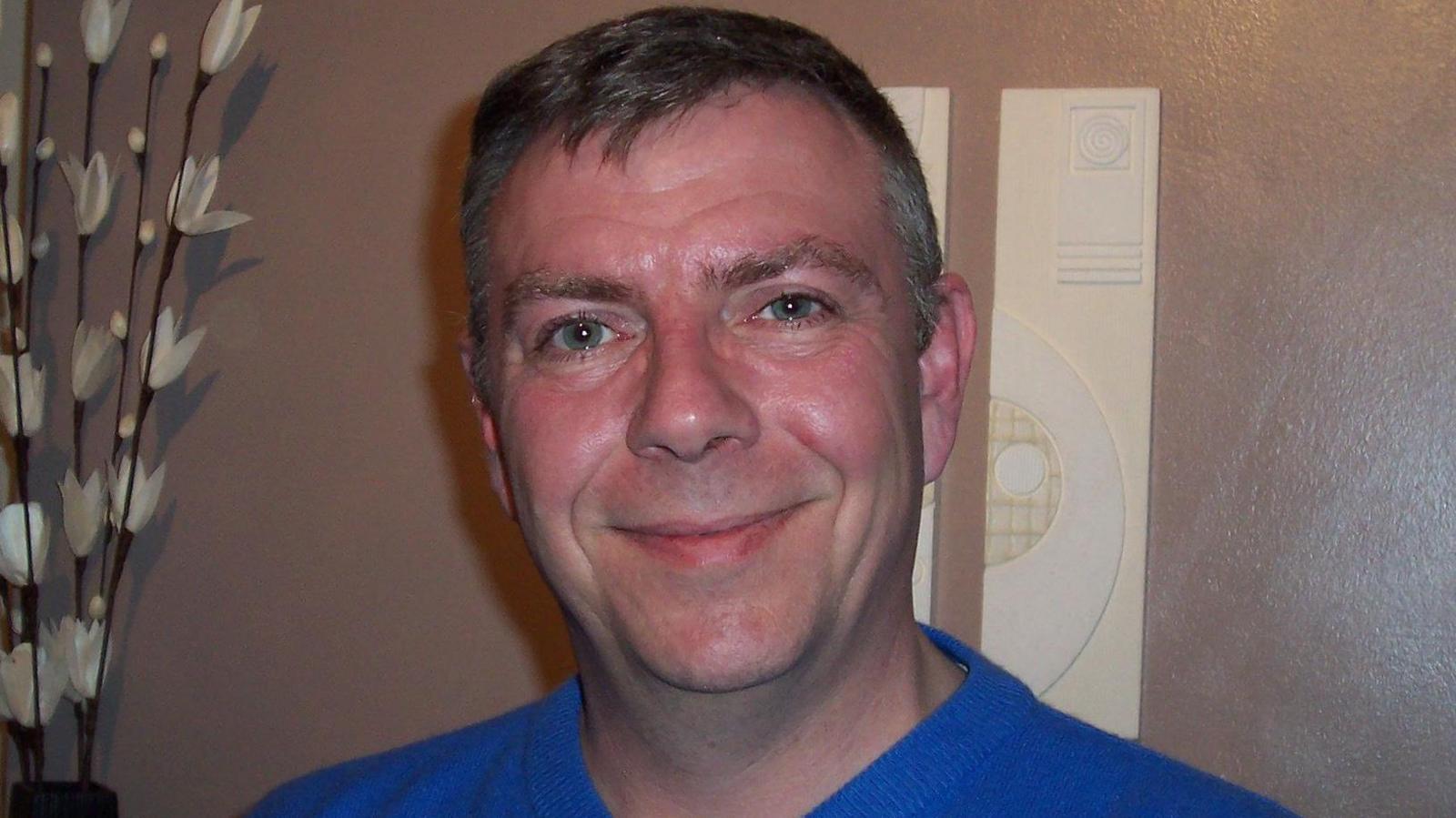
Mr Place did not think men could get breast cancer before being diagnosed
- Published
A father with incurable cancer is urging other men not to "die of ignorance".
Brian Place, 60, from Newcastle, was diagnosed with breast cancer in 2005 after discovering a pea-sized lump in his left breast and underwent a double mastectomy.
Initially, the operations manager delayed seeing his GP as he had "no idea" men could get the disease.
In 2010 he was discharged as a cancer patient, but in February this year he discovered it had returned in his spine, collapsing one of his vertebrae, as well as his pelvis and liver.
Mr Place has been told he has a "50/50 chance of making five years" as his secondary diagnosis is stage 4 and incurable.
Speaking about his advice to other men, he said: "Don't die of ignorance.
"This is a genderless disease, check yourself and if you find anything suspicious - get it checked out straight away."
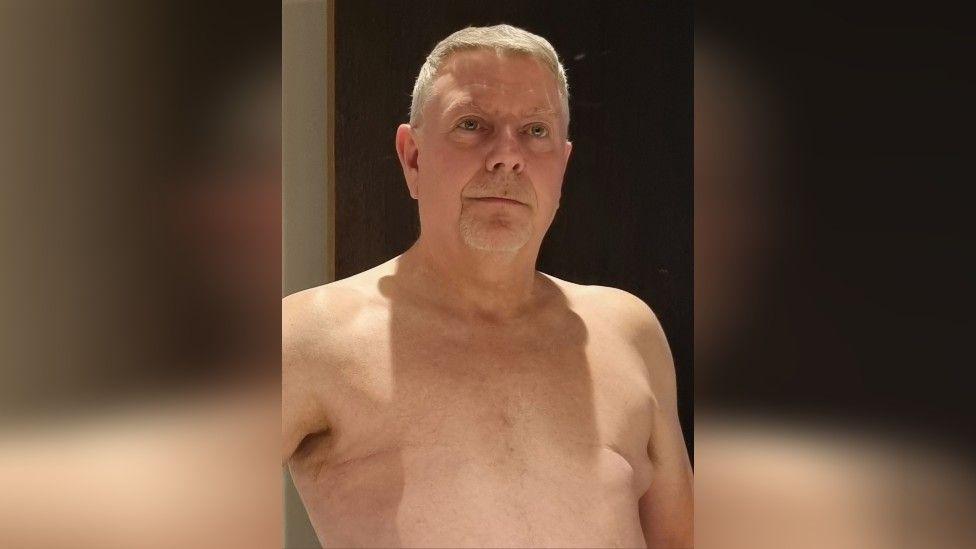
Mr Place went on to have a double mastectomy before being discharged in 2010
In 2005, Mr Place's surgeon explained he had most likely had the tumour for five or six years.
"Men must not be an ostrich and stick their head in the sand," he said.
About 370 men are diagnosed with breast cancer in the UK every year, according to Cancer Research UK.
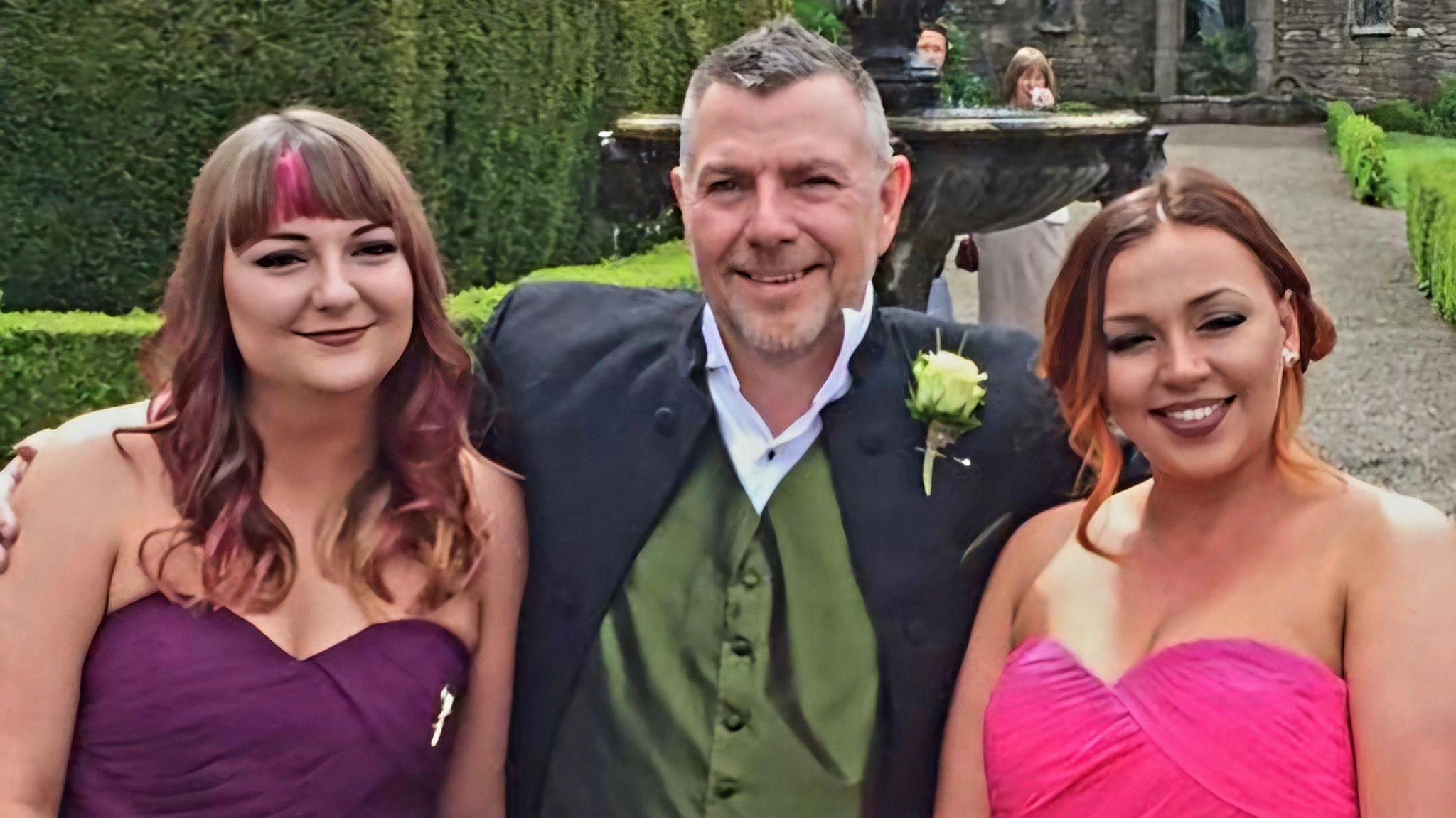
The father-of-two is urging other men to be "less ignorant"
Mr Place said he wants to continue to "look at the positive side of things" and help raise awareness of the disease in men.
He is now a member of a virtual support group for men with breast cancer, the Men's VMU.
"Blokes, particularly, every single one that you talk to, even on the Men's VMU, will tell you that they had no idea that men could get breast cancer," he said.
"Get the message out there, people are less ignorant, and the sooner they catch it, the better quality of life they're going to have, maybe even a cure."
Follow BBC North East on X, external, Facebook, external, Nextdoor and Instagram, external. Send your story ideas to northeastandcumbria@bbc.co.uk.
Related topics
More stories from the BBC
- Published17 October 2021
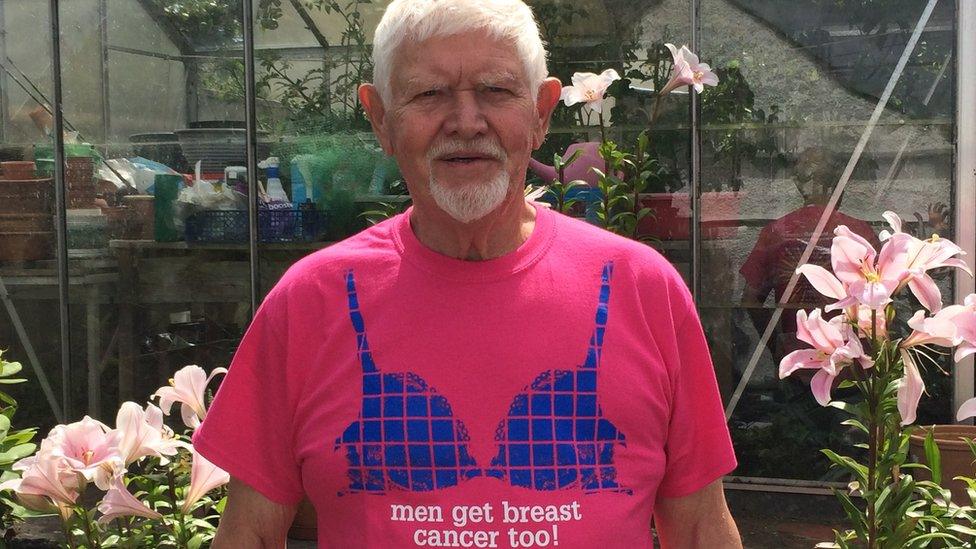
- Published18 December 2018

- Published6 September 2024
